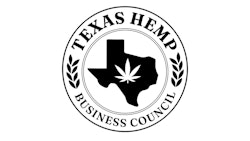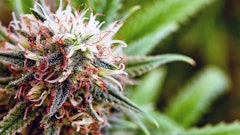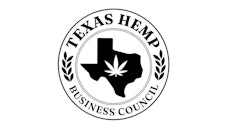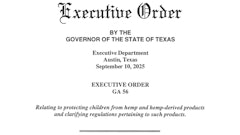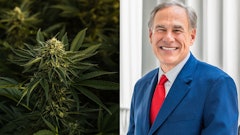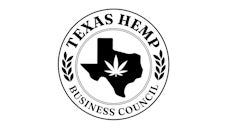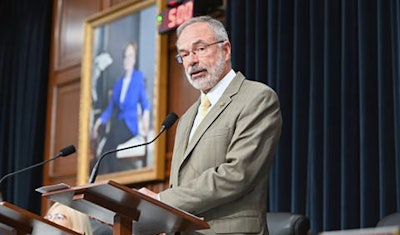
U.S. House Republicans advanced what many view as a hemp-killing provision in a must-pass appropriations bill for fiscal year 2026.
The House Appropriations Committee voted along party lines, 35-27, on June 23 to approve the Agriculture, Rural Development, Food and Drug Administration, and Related Agencies Appropriations Bill. The 138-page spending bill includes more than $25 billion in discretionary allocations to address myriad issues facing U.S. farmers, ranchers and rural communities.
In addition to focusing on America’s food and drug supply, this year’s bill also includes language to rewrite the rules around hemp-derived cannabinoid products. The provision aims to address what elected officials and law enforcement groups nationwide have increasingly viewed as a public health and safety concern in the aftermath of the 2018 Farm Bill’s federal legalization of industrial hemp cultivation. The 2018 Farm Bill regulates hemp as an agricultural commodity but not finished goods containing the plant’s derivatives.
Under the Appropriation Committee’s fiscal 2026 legislation, hemp-derived cannabinoid products containing synthetic compounds and/or quantifiable amounts of THC or THCA—or other cannabinoids that have similar effects on humans or animals—would be illegal.
When the legislation first advanced through the House Subcommittee on Agriculture, Rural Development, Food and Drug Administration (FDA), on June 5, Rep. Andy Harris, R-Md., said he was hoping to close the “hemp loophole” in the 2018 Farm Bill that has resulted in the proliferation of intoxicating cannabinoid products, such as those that contain delta-8 THC.
Harris, who chairs the subcommittee, provided similar opening remarks for the full committee markup that followed.
“As many states have stepped in to curb these dangerous products from reaching consumers, particularly children, it’s time for Congress to act to close this loophole while protecting the industrial hemp industry,” Harris said. “Reports that the included language would destroy legitimate businesses are simply not true—and that is clear to anyone closely reading the carefully drafted language that threaded the needle.”
The U.S. Hemp Roundtable accused Harris earlier this month of “reviving his crusade” to “quietly” dismantle the hemp industry by burying language on page 113 of the proposed spending bill that would redefine hemp in a way that would “ban the vast majority of safe, legal hemp-derived products sold nationwide.”
The industry advocacy organization contended that the bill’s inclusion of language to prohibit products with “quantifiable amounts” of THC or THCA would also effectively ban most nonintoxicating CBD products.
Renée Johnson, a specialist in agricultural policy with the nonpartisan Congressional Research Service (CRS), authored a June 13 report on the appropriations bill that backed that claim, writing that “excluding hemp-derived cannabinoid products from the federal definition of hemp effectively would prohibit production and sale of hemp-derived cannabinoids, derivatives, and extracts thereof, including cannabidiol (CBD).”
However, an updated version of Johnson’s CRS report was published on June 20 to exclude any mention of CBD.
Manufacturing hemp products with a purified CBD isolate that filters out even trace amounts of THC is a much more expensive process: Under the 2018 Farm Bill, hemp can contain up to 0.3% delta-9 THC on a dry-weight basis during a pre-harvest field test. But eliminating that potency threshold would change the compliance rules on finished goods.
The House Appropriations Committee approved a manager’s amendment (from Harris) on June 11, clarifying that in “determining the quantifiable amounts, the committee does not intend for industrial or nonintoxicating, hemp-derived cannabinoid products with trace or insignificant amounts of THC to be affected.”
The legislation authorizes the U.S. Secretary of Health and Human Services to determine what qualifies as “quantifiable amounts” of THC or other cannabinoids. In addition, industrial hemp grown for fiber, grain or other non-cannabinoid purposes would be defined separately.
While thousands of U.S. businesses have become dependent on manufacturing, distributing and selling consumable products containing intoxicating hemp derivatives, not all industry associations necessarily disagree with the intent of the appropriations bill.
The American Trade Association of Cannabis and Hemp (ATACH) stands on the principle that intoxicating products should be regulated when available for consumers to improve public safety and promote growth for the cannabis industry.
“The 2018 Farm Bill set the stage for the proliferation of synthetic THC products,” ATACH President Michael Bronstein said in a June 23 statement provided to Cannabis Business Times. “Today’s action by the House Appropriations Committee is an important first step toward addressing the risks posed by synthetic THC products, creating clear regulatory lanes for hemp-derived products, and resolving legal loopholes.
“Congress must confront the dangers of chemically converted synthetic THC products, safeguard CBD, and create parity across natural THC products regardless of origin. We look forward to continuing to work with Congress to create a unified federal framework for all natural THC products.”
Harris also included similar hemp language in his subcommittee’s draft of the fiscal 2025 agriculture/FDA spending bill, but it was later removed from last year’s appropriations package.
This year’s rendition is now being prepared to arrive on the House floor.














